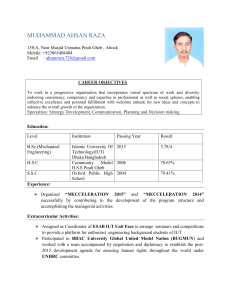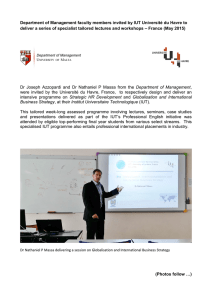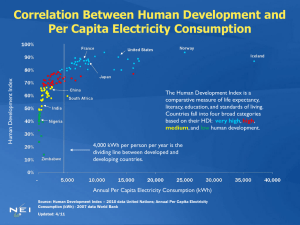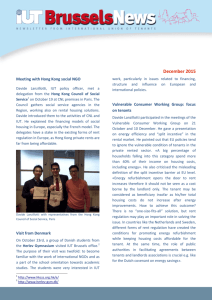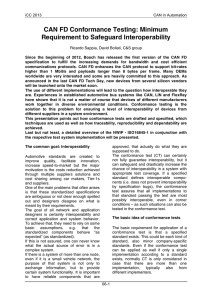The International Union of Tenants' views on the European
advertisement
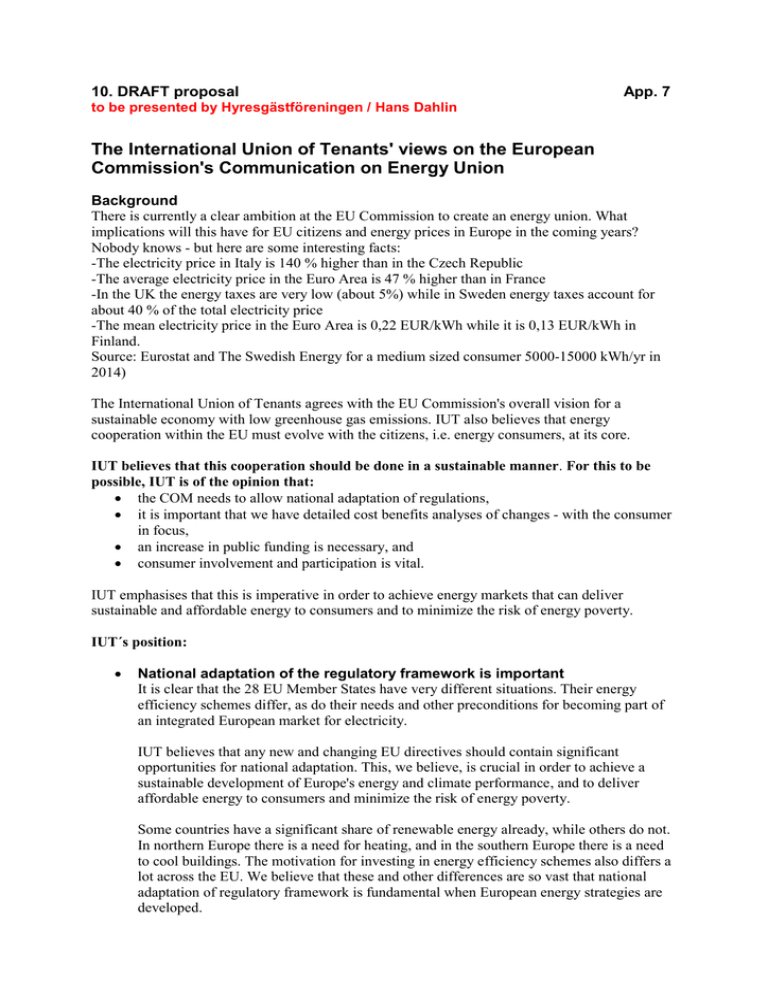
10. DRAFT proposal App. 7 to be presented by Hyresgästföreningen / Hans Dahlin The International Union of Tenants' views on the European Commission's Communication on Energy Union Background There is currently a clear ambition at the EU Commission to create an energy union. What implications will this have for EU citizens and energy prices in Europe in the coming years? Nobody knows - but here are some interesting facts: -The electricity price in Italy is 140 % higher than in the Czech Republic -The average electricity price in the Euro Area is 47 % higher than in France -In the UK the energy taxes are very low (about 5%) while in Sweden energy taxes account for about 40 % of the total electricity price -The mean electricity price in the Euro Area is 0,22 EUR/kWh while it is 0,13 EUR/kWh in Finland. Source: Eurostat and The Swedish Energy for a medium sized consumer 5000-15000 kWh/yr in 2014) The International Union of Tenants agrees with the EU Commission's overall vision for a sustainable economy with low greenhouse gas emissions. IUT also believes that energy cooperation within the EU must evolve with the citizens, i.e. energy consumers, at its core. IUT believes that this cooperation should be done in a sustainable manner. For this to be possible, IUT is of the opinion that: the COM needs to allow national adaptation of regulations, it is important that we have detailed cost benefits analyses of changes - with the consumer in focus, an increase in public funding is necessary, and consumer involvement and participation is vital. IUT emphasises that this is imperative in order to achieve energy markets that can deliver sustainable and affordable energy to consumers and to minimize the risk of energy poverty. IUT´s position: National adaptation of the regulatory framework is important It is clear that the 28 EU Member States have very different situations. Their energy efficiency schemes differ, as do their needs and other preconditions for becoming part of an integrated European market for electricity. IUT believes that any new and changing EU directives should contain significant opportunities for national adaptation. This, we believe, is crucial in order to achieve a sustainable development of Europe's energy and climate performance, and to deliver affordable energy to consumers and minimize the risk of energy poverty. Some countries have a significant share of renewable energy already, while others do not. In northern Europe there is a need for heating, and in the southern Europe there is a need to cool buildings. The motivation for investing in energy efficiency schemes also differs a lot across the EU. We believe that these and other differences are so vast that national adaptation of regulatory framework is fundamental when European energy strategies are developed. 2 (2) The benefit of investment in the integrated European electricity market must be proportionate to the cost It is important to have a comprehensive, continuous and open analysis of the integrated European electricity market. These analyses must put the energy consumer at its core. It is important that the cost of investment in new transmission capacity, new technology and so-called smart grids is proportionate to the benefit of consumers. The consequences of not doing so are severe. If large investments are made that benefits the energy consumer little or not at all, but lead to high increases in energy costs, this will lead to more energy poverty. Additional public funding is crucial for further energy efficiency and increased investments in the development of the internal European electricity market Many energy efficiency measures are not cost effective from the property owner’s narrow perspective. The International Union of Tenants believes, nevertheless, that from a broader sustainability perspective more energy efficiency measures should be implemented. It is then essential that the financing of these actions can be done in a socially sustainable manner. The International Union of Tenants therefore agrees with the European Commission's analysis that further financial instruments are needed to achieve sustainable energy efficiency in buildings. The International Union of Tenants believes that public funding is necessary for investments in the development of the internal electricity market in order to keep energy costs at affordable levels for the consumer. Consumer involvement and participation The development of European energy markets will affect citizens in many different ways. All the consequences are difficult, if not impossible, to predict. IUT therefore believes that it is vital to include the consumers, in this context the residents, early in the process. Not just consumer organizations but consumer groups with different social mixtures. /President IUT Text about IUT:
